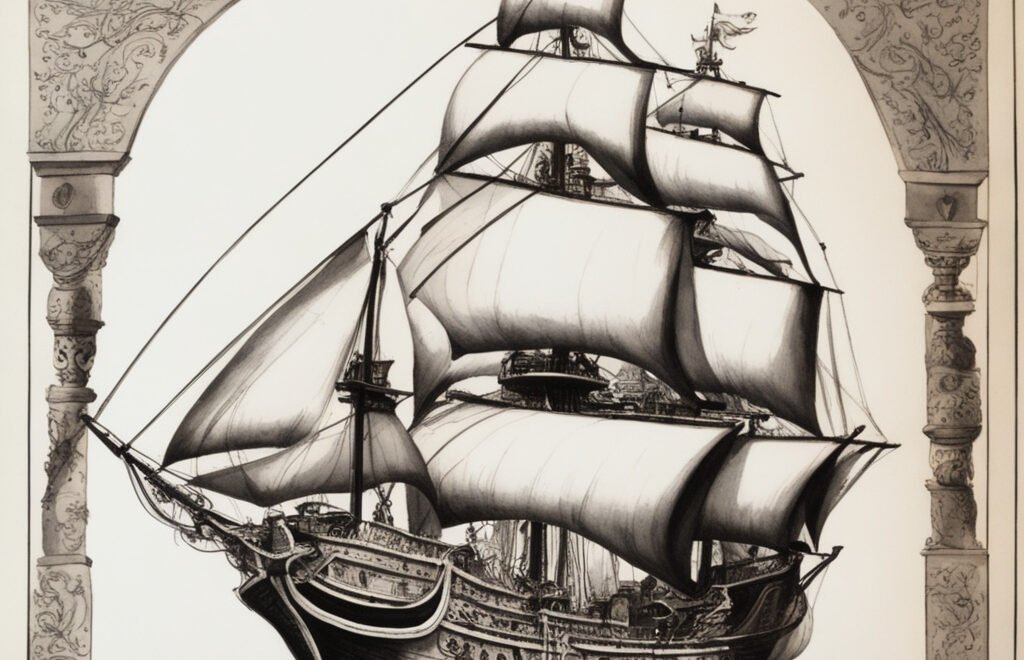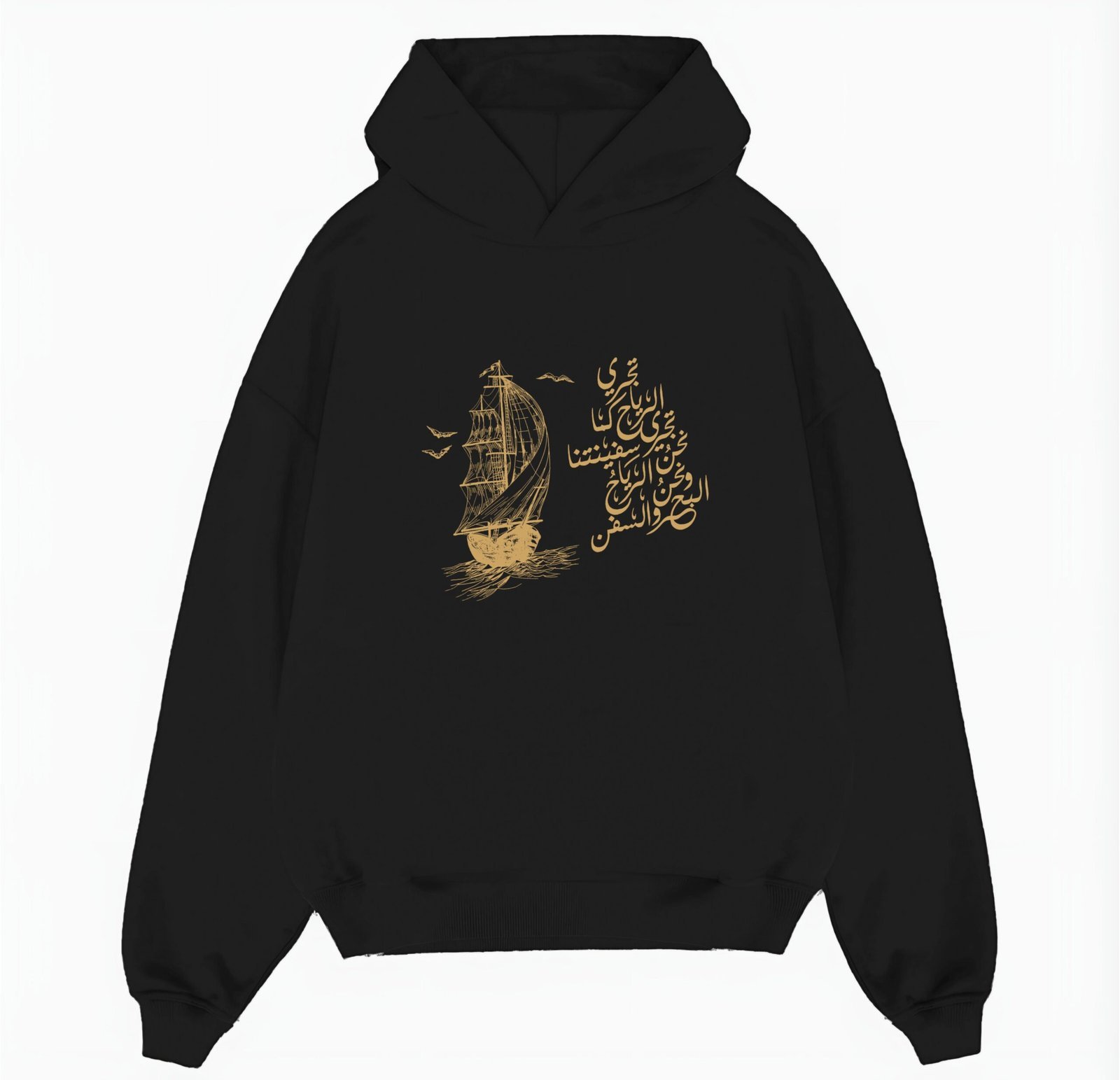This Arabic poem delves into the theme of fate, resilience, and acceptance of life’s uncertainties. Let’s analyze it stanza by stanza:
- “ما كلُّ ما يتمنى المرءُ يدرِكُهُ تجري الرياحُ بما لا تشتهي السُّفُنُ.”
Translation: “Not everything that a person desires is attainable, The winds blow in directions that ships do not desire.”
In these opening lines, the poet reflects on the unpredictable nature of life. Despite our desires and aspirations, external forces beyond our control—symbolized by the winds—may lead us in unexpected directions. This stanza serves as a reminder of the limitations of human agency and the importance of accepting life’s twists and turns.
- “ردَّ عليهِ شخصٌ مزهوٌّ بنفسِه قائلًا… تجري الرياحُ كما تجري سفينتُنا نحنُ الرياحُ ونحنُ البحرُ والسُّفُنُ….”
Translation: “A conceited person responded to him saying… The winds blow just as our ship sails, We are the winds, the sea, and the ships.”
Here, the poet introduces a character who responds arrogantly, asserting that they are in control of their destiny. They claim that they are not merely subject to the whims of fate, but rather they are the masters of their own destiny, akin to the winds that guide their ship. This stanza highlights the arrogance and self-delusion of those who believe they are immune to the uncertainties of life.
- “ولستُ أهتمُّ كيف الرياحُ آتيةٌ إني وقومي لسنا نملكُ السُّفُنَا.”
Translation: “I do not care how the winds come, For my people and I do not possess ships.”
In this stanza, the speaker dismisses the arrogance of the previous responder. They acknowledge that regardless of how the winds blow, they lack the means to control their destiny. This stanza emphasizes humility and acceptance of life’s uncertainties, recognizing that despite our desires, we may not always have the means to navigate the challenges we face.
- “وأخيرًا جاء امرؤٌ حاذقٌ لبيبٌ راويًا أبياتًا رائعة: تجري الرياحُ بما شاءَ الإلهُ لها للهِ نحنُ وموجُ البحرِ والسُّفُنُ.”
Translation: “Finally, a wise and clever person came, reciting beautiful verses: The winds blow as God wills them to, We belong to God, as do the waves and the ships.”
In this concluding stanza, the poet presents a wise and insightful perspective. The speaker acknowledges that ultimately, it is the will of God that determines the course of the winds, the sea, and the ships. This stanza emphasizes the importance of faith, surrender, and acceptance of divine providence in the face of life’s uncertainties.



